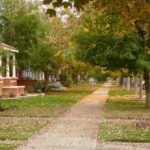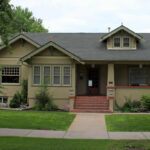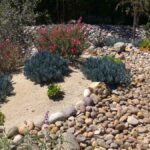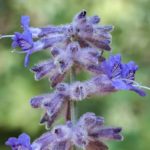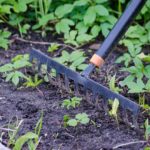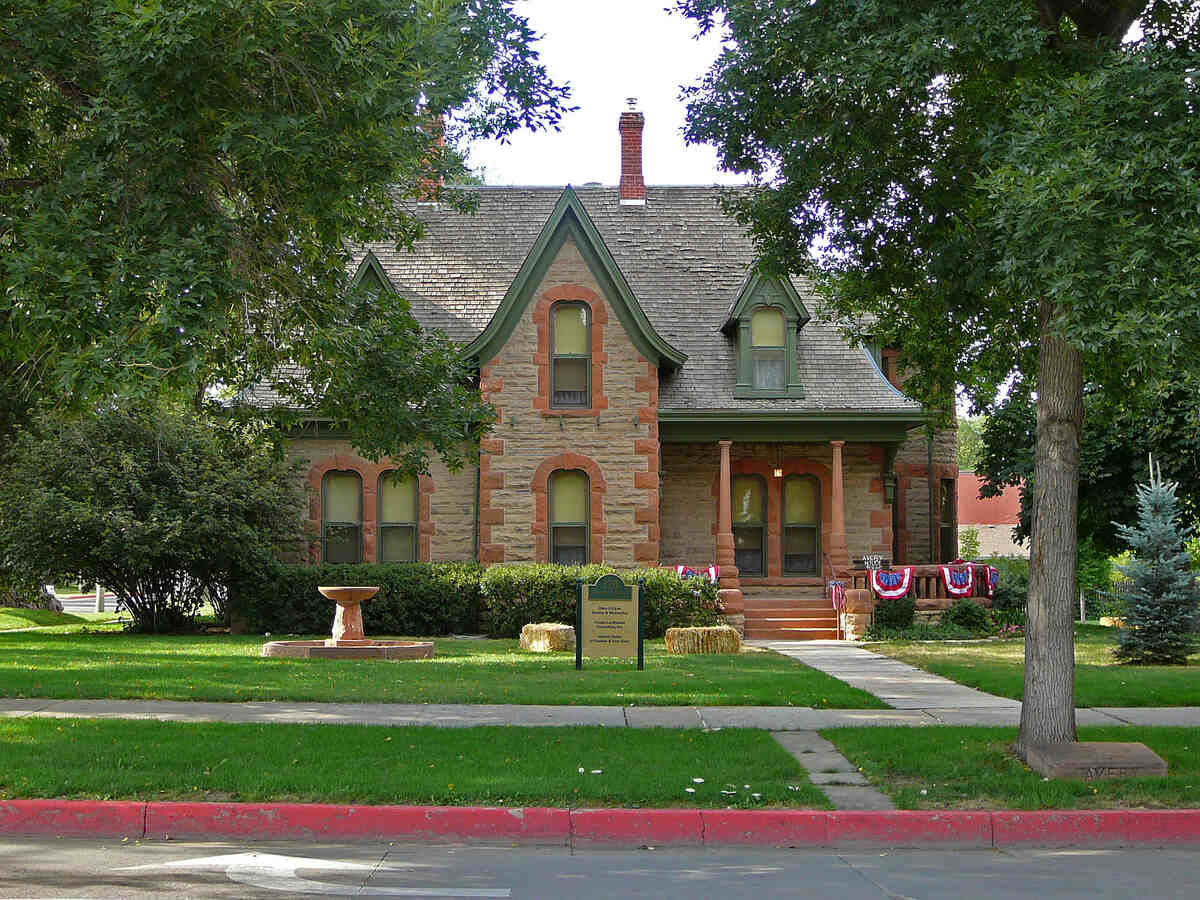
Most grasses that thrive in Fort Collins are cool-season. While Kentucky bluegrass is ideal for creating dense, green turf, tall fescue tolerates foot traffic the best and doesn’t need much maintenance. Fine fescue is ideal for shady lawns, and perennial ryegrass resists weeds well. Finally, there’s the warm-season buffalograss, which is the least water-needy.
Knowing local grass types and picking the one that’s right for you is essential for establishing a healthy turf. After all, grasses vary in appearance and maintenance more than you might think. Here’s more about the best 5 grasses for Fort Collins.
Key Takeaways
Choose the best grass seed. The most common grass is Kentucky bluegrass, but it doesn’t work for everybody. You can also get buffalograss, tall fescue, fine fescue, or perennial ryegrass.
Think about your lawn’s needs: Consider what you want to use your lawn for, how you’re going to take care of it, and your yard’s conditions.
Get your grass seed: You can buy grass seed online or at your nearest store. Scroll down to find the best stores.
Kentucky Bluegrass
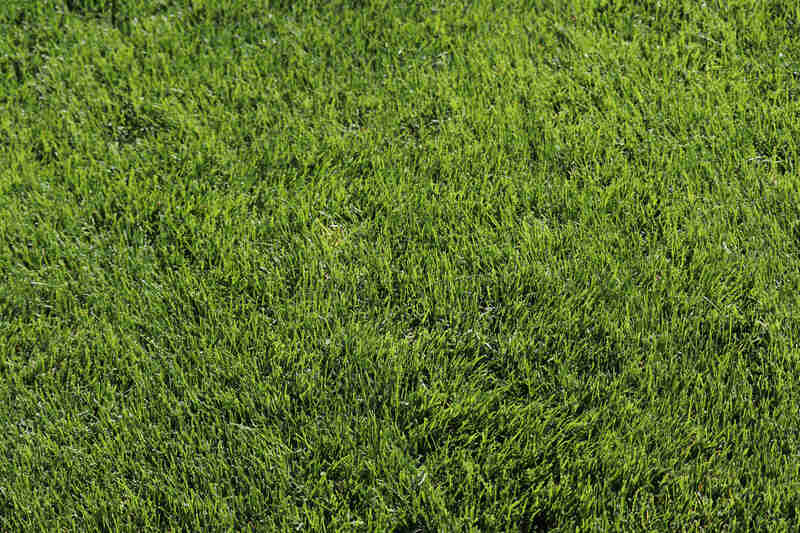
Photo Credit: Shutterstock
| Traffic tolerance | Yes, because it repairs itself easily (less so in warm weather) |
| Type | Cool-season |
| Elevation tolerance | Up to 7,000 feet |
| Shade tolerance | Tolerates some shade |
| Maintenance needs | High |
| Water needs | High compared to other grasses. May need as much as 2.5 inches of water per week in the summer. It’s likely to survive a drought by going brown. |
| Soil needs | Grows best on well-drained, fertile soils with a pH between 6 and 7. |
| Ability to stay green year-round | Yes; especially with proper care and overseeding with another grass type. But it’s likely to go dormant during the coldest and warmest months. |
| Disease resistance | Susceptible under stress. Newer cultivars and well maintained lawns are more disease-resistant. |
| Weed resistance | No, especially not under stress. |
| Available as sod? | Both sod and seed are available. |
Kentucky bluegrass is the most popular Colorado grass. It creates a dense, cool-season, blue-green turf that adorns many local lawns. Moreover, it gives a cleaner cut than grasses like tall fescue and tolerates cold weather better. It also recovers quickly from damage.
However, it’s also the most water-needy grass. It may be worth reconsidering this grass choice if you want to save yourself the trouble of much watering and be kinder to the environment. Plus, when not well-managed, the grass is prone to thatch, diseases, weeds, and insects.
Grass Seed Options:
– Jonathan Green (11970) Blue Panther Kentucky Bluegrass Grass Seed (3 lbs.)
– SeedRanch Midnight Kentucky Bluegrass Seed (5 lbs.)
– Jacklin Seed – Biltmore Blue Blend – 100% Kentucky Bluegrass (5 lbs.)
Buffalograss
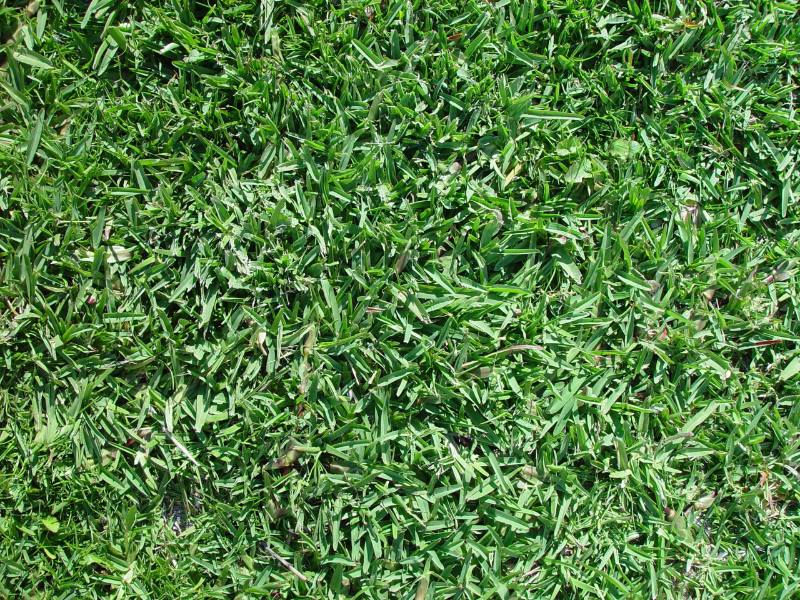
Photo Credit: Pixnio
| Traffic tolerance | Slight |
| Type | Warm-season |
| Elevation tolerance | Up to 6,500 feet, but it will have a short growing season. |
| Shade tolerance | Not great, but it tolerates a little shade |
| Maintenance needs | Low |
| Water needs | Not high once established; but needs at least one to two inches of water every two to four weeks during the summer. Resistant to drought. |
| Soil needs | Naturally fertile, well-drained, clay and loam upland soils with pH between 6.5 and 7.5. |
| Ability to stay green year-round | No; goes dormant in the winter. It’s drought tolerant but will go brown during the summer without irrigation. |
| Disease resistance | Yes; doesn’t have problems with serious diseases in Colorado. |
| Weed resistance | No |
| Available as sod? | Both sod and seed are available in different varieties. |
Buffalograss is a native North American grass. It’s appealing for its low maintenance and watering requirements, and is a great grass for xeriscaping in Fort Collins. The grass is soft, classified as warm-season, and easily established with sod, seed, or plugs. It’s often mixed with other species.type
However, because of its low density, you may deal with weeds. It also doesn’t like much foot traffic, and won’t be green for as much of the year as grasses that tolerate the cold better. Moreover, if you buy seed, expect to deal with high costs of both the seeds and extensive watering needed until the grass establishes.
Grass Seed Options:
– Everwilde Farms Buffalograss Seeds (1 lb. of seeds)
– Scotts Pursue Buffalograss with Natural Seed (1 lb. of seeds)
– Outsidepride Perennial Buffalo Grass Seed (2 lb. of seeds)
Tall Fescue
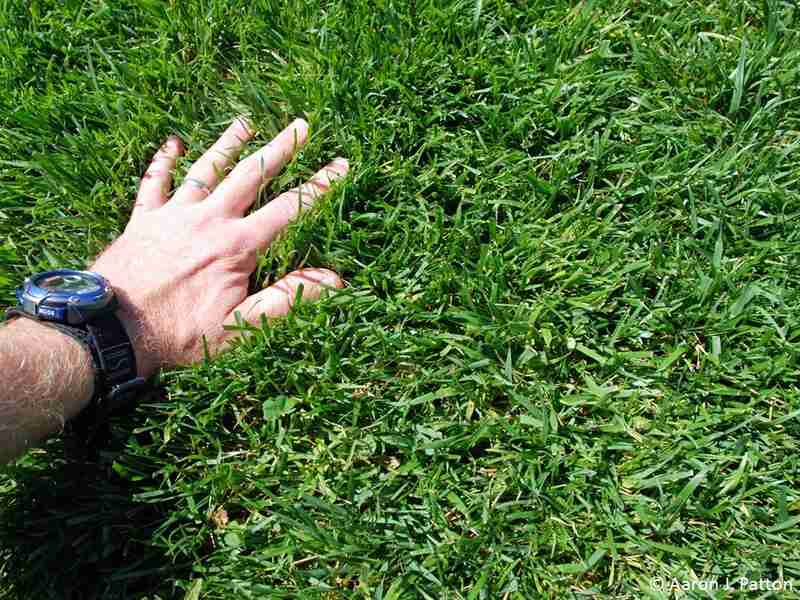
Aaron J. Patton, Ph.D. / Turfgrass Extension Specialist at Purdue University
| Traffic tolerance | Good |
| Type | Cool-season |
| Elevation tolerance | Up to 7,000 feet |
| Shade tolerance | Relatively yes |
| Maintenance needs | Low, but needs frequent mowing. |
| Water needs | Tolerate drought and heat but may go dormant in the summer heat. |
| Soil needs | Adaptable, but it does best in clay soils with high organic matter. |
| Ability to stay green year-round | Yes, with proper care and maintenance, but is likely to go dormant during the coldest and warmest months. |
| Disease resistance | Fairly; Fusarium blight can severely damage it. |
| Weed resistance | No, but if you let it grow tall, it will resist weeds better. |
| Available as sod? | Yes |
Tall fescue is an easy-care, tall, cool-season grass that’s adaptable to a variety of conditions. Its deep roots help it tolerate drought and heat, but it will even survive under some shade. It also withstands wear, although it’s not as resistant to cold as Kentucky bluegrass. Tall fescue is great for mixes.
This grass grows quickly, so get ready to mow it often. However, letting it grow a bit tall helps it stay more resistance.
Grass Seed Options:
– Triple-Play Tall Fescue Grass Seed Blend (5000 sq ft)
– Eretz Kentucky 31 K31 Tall Fescue Grass Seed (choose your size)
– Pennington The Rebels Tall Fescue Grass Seed Mix (7 lb.)
Fine Fescue
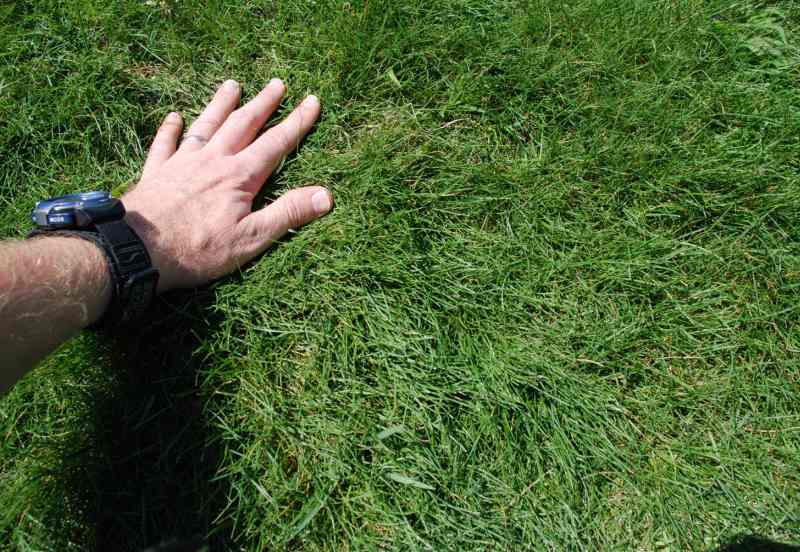
| Traffic tolerance | Not good |
| Type | Cool-season |
| Elevation tolerance | Up to 8,000 feet, depending on the cultivar |
| Shade tolerance | High |
| Maintenance needs | Low |
| Water needs | Moderately to highly drought-resistant, but may go dormant during dry spells. |
| Soil needs | Adaptable; grows well in well-drained, drier, droughty, infertile soils. Specifics depend on cultivar. |
| Ability to stay green year-round | Likely to go dormant during most extreme temperatures, but can stay green for much of the year with the right care. Some cultivars, like creeping red or hard fescue, may perform better. |
| Disease resistance | More resistant than other species, but not immune. Disease resistance also depends on cultivar. |
| Weed resistance | Some cultivars resist weeds better than others. |
| Available as sod? | Rarely available. Mostly, fine-fescue is established as seed. |
Perfect for shady and sunny lawns alike, fine fescue is a cool-season grass that comes in plenty of varieties with different qualities. This grass doesn’t spread aggressively and doesn’t need as much mowing as its Tall counterpart. It’s great for mixing with other grasses. It’s also commonly used in high elevations, so it will work in Fort Collins’s mountainous regions. Like the other cool-season grasses in this article, fine fescue is often used for mixes.
The cons of fine fescue are that it’s, well, fine. Don’t expect it to withstand high traffic or heat.
Grass Seed Options:
– Outsidepride Legacy Fine Fescue Grass Seed (5 lbs.)
– Eretz Creeping Red Fine Fescue Seed (choose your size)
– Outsidepride Creeping Red Fine Fescue Grass Seed (25 lbs.)
– Outsidepride Hard Fine Fescue Grass Seed (10 lbs.)
Perennial Ryegrass
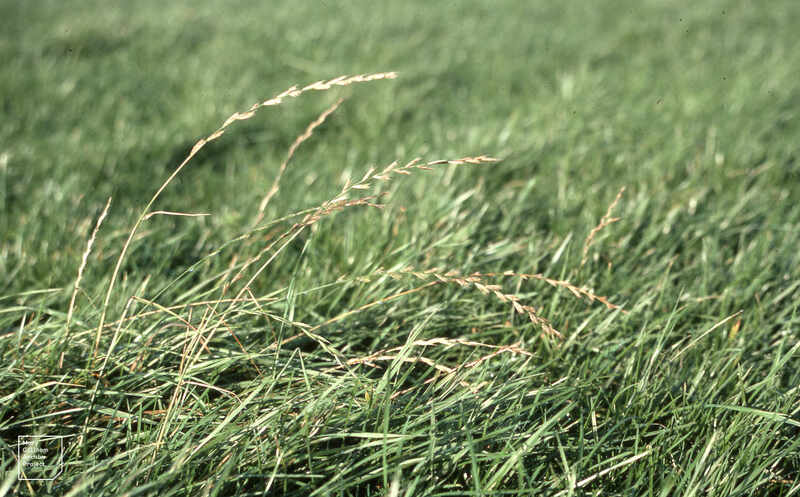
Photo Credit: Dr Mary Gillham Archive Project / Flickr / CC BY 2.0
| Traffic tolerance | Good |
| Type | Cool-season |
| Elevation tolerance | Up to 7,000 feet; some cultivars may survive in higher elevations in the right conditions. |
| Shade tolerance | Slight |
| Maintenance needs | Low |
| Water needs | One inch during the summer if it doesn’t rain |
| Soil needs | Adaptable to various well-draining, non-soggy soils. Grows in ph 6 to 7. |
| Ability to stay green year-round | Will go brown in the summer and in the winter. Doesn’t tolerate drought or freezing temperatures. |
| Disease resistance | Low |
| Weed resistance | Not completely, but because it grows fast, it helps to suppress weeds. |
| Available as sod? | Yes |
Perennial ryegrass rapidly turns a bland yard into a grand yard. It’s a soft, cool-season, fast-growing grass that’s reel-mower friendly and not prone to thatch. It’s most often used for mixes.
However, perennial ryegrass doesn’t heal itself well after damage. It doesn’t tolerate shade, heat, and drought. It’s also susceptible to some diseases.
Grass Seed Options:
– Outsidepride Perennial Ryegrass Seed (5 lbs.)
– Eretz ProTurf Perennial Ryegrass Fine Lawn Seed (choose your size)
How to Choose Grass Seed
Here’s what to consider before you pick grass seed:
- What will you use the lawn for? Is its purpose to look pretty or will it be used heavily by children and pets? to be stomped on by children or pets?
- Do you want a cool-season or warm-season grass?
- What is your elevation? The highest point in Fort Collins is 7,259 feet above sea level.
- Is your lawn shaded?
- Do you have time to maintain it, or are you looking for something low-maintenance?
- Do you have access to inexpensive water, or do you want to use as little water as possible? (if the latter, consider xeriscaping)
- What is your soil type?
- Do you want your lawn to stay green for most of the year?
- Does your existing lawn have a history of disease problems?
- Does your existing lawn have a history of weed problems?
- Will you plant sod or seed?
Once you’ve answered these questions, check out the overviews of common Fort Collins grass types and make your pick.
Here’s a summary of what each Fort Collins grass is generally best at:
| What the Grass is Best For | Grass Type |
| Best for a pretty lawn | Kentucky bluegrass |
| Least water-demanding | Fine fescue |
| Least maintenance-demanding | Tall fescue |
| Best for foot traffic | Tall fescue |
| Best for shade | Fine fescue |
| Most weed-resistant | Perennial ryegrass |
Note: Some of these grasses come as mixes to combine their strengths.
Where to Buy Grass Seed
You can buy grass seed online or at your local store. Check out:
Pro Tip: If you live somewhere else in Colorado than Fort Collins, or know someone else who does, be sure to check out our Best Grass Seed for Colorado and How to Water Your Lawn in Colorado articles.
FAQ
Seed cool-season grasses from March to September. Seed warm-season grasses (buffalograss) from April to July.
Usually, it’s best to water your Fort Collins lawn one to two times a week, between midnight and 6 a.m. Here’s more about when to water your Fort Collins lawn.
The best height for Fort Collins grasses is usually 2.5 to 3 inches, and never less than 2 inches. Taller grass is more resilient.
You may be familiar with the advice to mow your grass shorter in the fall. But according to Colorado State University, there’s no need to cut your grass shorter in the fall. Moreover, remember to never cut more than one third of your grass length at a time. Here’s more about the best grass heights.
Pros Do It Better
Perhaps you have more things to do than researching Fort Collins’s ideal grass care. Plus, with so much to know, you risk making a costly mistake. Lawnstarter will get you in touch with a Fort Collins lawn care pro in seconds. Get an instant quote.
Expert sources
LawnStarter participates in the Amazon Services LLC Associates Program, an affiliate advertising program. LawnStarter earns revenue from products promoted in this article.
Main Image Credit: Paul L Dineen / Flickr / CC BY 2.0
